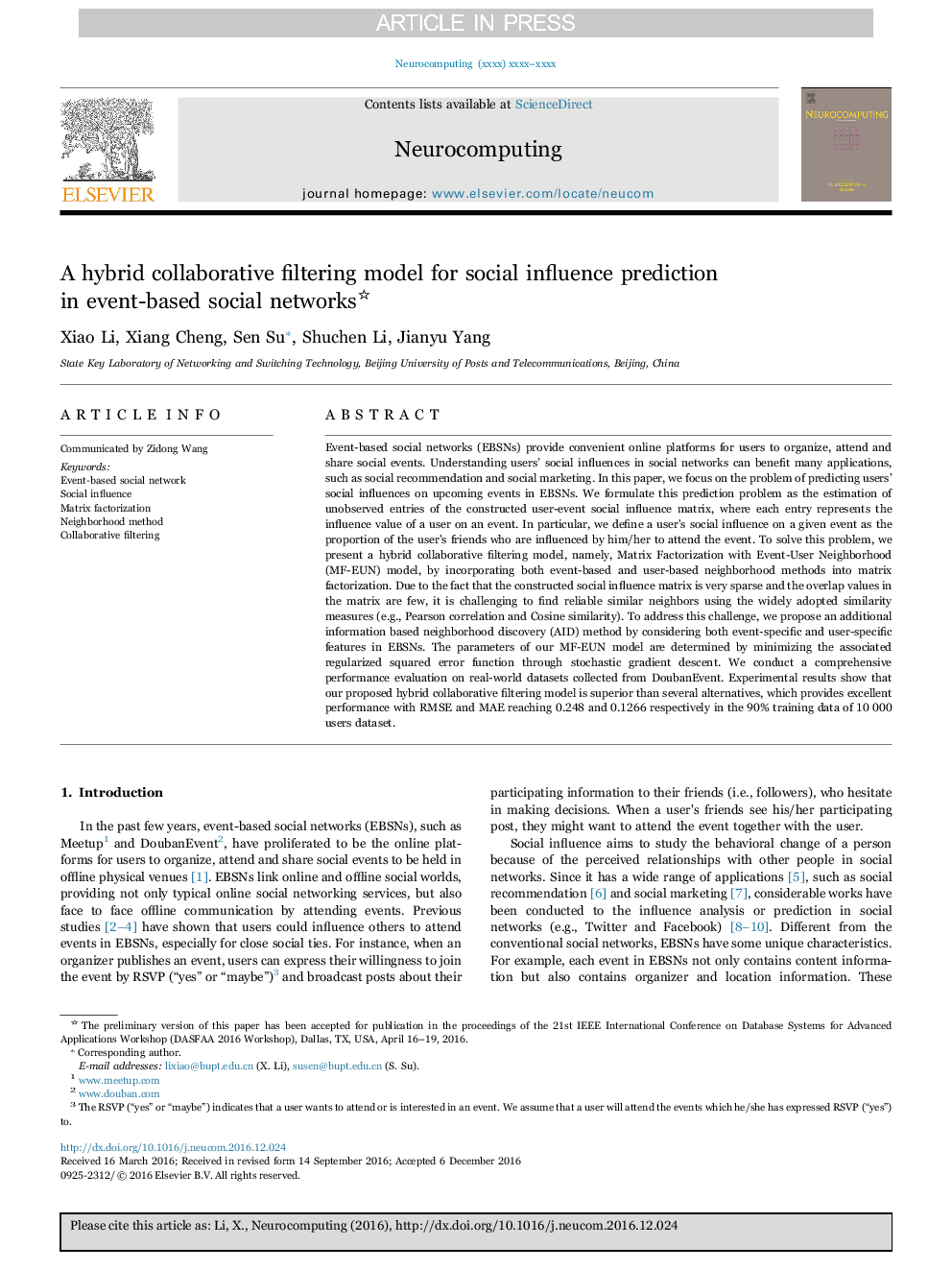ترجمه فارسی عنوان مقاله
یک مدل فیلتربندی ترکیبی برای پیش بینی نفوذ اجتماعی در شبکه های اجتماعی مبتنی بر رویداد
عنوان انگلیسی
A hybrid collaborative filtering model for social influence prediction in event-based social networks
| کد مقاله | سال انتشار | تعداد صفحات مقاله انگلیسی |
|---|---|---|
| 137379 | 2017 | 13 صفحه PDF |
منبع

Publisher : Elsevier - Science Direct (الزویر - ساینس دایرکت)
Journal : Neurocomputing, Volume 230, 22 March 2017, Pages 197-209
ترجمه کلمات کلیدی
شبکه اجتماعی مبتنی بر رویداد نفوذ اجتماعی، تقسیم ماتریس، روش محله فیلتر کردن همگانی،
کلمات کلیدی انگلیسی
Event-based social network; Social influence; Matrix factorization; Neighborhood method; Collaborative filtering;

